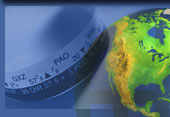
FTAA Recommendations
![]()
To download the complete report, chose a format:
In recommending options for the dispute resolution mechanism(s) of the FTAA, we first of all selected those options we judged to be effective in meeting our objectives of increasing transparency, improving the balance of expertise, and improving the ability of the public to voice concerns.
Secondly, we used the insights that we had acquired
through our fifteen interviews to select specific, practical formulations
of our most effective options.
Recommendations to increase transparency:
1.1: Mandatory publication of all dispute settlement proceedings at the appropriate time.
1.2: Publication of dispute settlement proceedings through all major mass medias.
Opaque dispute mechanisms prevent domestic proponents of health, environment, and other sectors from obtaining sufficient information about the proceedings to provide input. Citizens of member countries should be given the opportunity to inspect, understand, and criticize the way in which decisions are made. The time frame in which these proceedings are published is critical for citizens to be able to react and affect the outcomes.
Putting information into the hands of the citizens of member countries requires more than simply disseminating documents on the internet. Using television, and more specifically, radio and newspaper as media would be much more effective considering the large economic gap between nations in the western hemisphere. The majority of nations under the FTAA simply do not have the resources to take advantage of internet publications.
2.1: Mandatory publication of panelists' names and nationalities.
2.2: Regulations against conflict of interest of panelists.
To prevent conflicts of interest from occurring on FTAA dispute panels, we make two interdependent recommendations. The first addresses the issue of providing the public with the backgrounds of those who serve as panelists in order to allow the public to expose conflicts of interest, and to assess the expertise of panel members.
The second recommendation recognizes the need for more effective formal safeguards to prevent conflicts of interest. Current regime language limits the disclosure of information when "the respect of personal privacy" of the panelists is jeopardized, or when the administrative work becomes so burdensome that it "makes it impracticable for otherwise qualified persons to serve on the panels" (Wallach, 2000).
Recommendations to improve the balance of expertise:
3.1 Require panels to consider submissions from third-parties.
3.2 Require the consultation of advisory bodies by panel.
3.3 Require specialists on panels for disputes which encompass issues beyond trade.
In some cases, FTAA dispute settlement panelists may need specialised information from outside their traditional economic expertise in order to make fully informed decisions. We recommend three ways to ensure that relevant expertise is included. First, there must be a mechanism in place to ensure that third party submissions are used consistently. A requirement to publish the reasoning behind why a brief was or was not considered would improve transparency and avoid any abuses of this mechanism.
Second, we advocate the judicious consultation of advisory bodies by panels. This is presently possible under many DRMs, but is done at the discretion of the panel. We would again recommend the creation of a public record so that this process can be scrutinized.
Finally, criteria should be in place to ensure that where there are substantive non-trade issues before the panel, panelists with appropriate expertise are appointed. Avoiding narrow interpretations by panels will be facilitated with a more diverse group of panel experts.
Recommendations to improve the ability of the public to voice concerns:
5.1 Provision of Funds and Technical Assistance to access DRMs.
A disparity exists between wealthy and poor nations' functional and financial ability to take full advantage of the dispute settlement process. A similar disparity exists amongst NGO's and individuals. Information centres can be established in developing nations, where legal assistance will be provided and financial backing can be requested. Similarly, legal and financial assistance should be provided for small organisations or individuals wishing to submit information to a panel. Their information can only enrich the process if they have the means to participate.
References:
Wallach, L. 2000. "The WTO Dispute Settlement System" Presented to Senate Finance Committee, Subcommittee on International Trade.